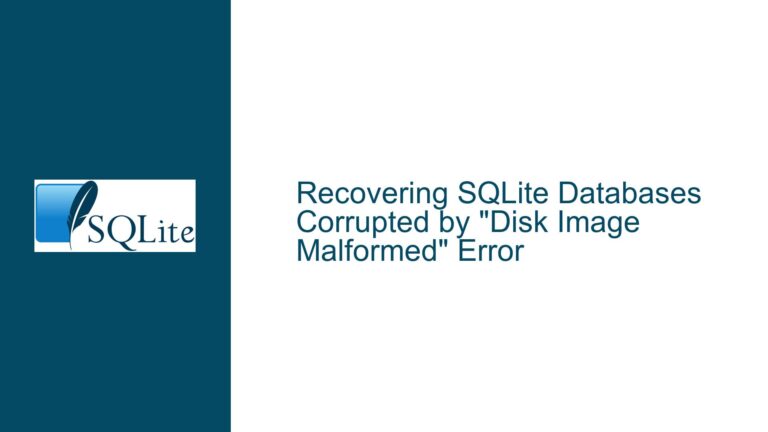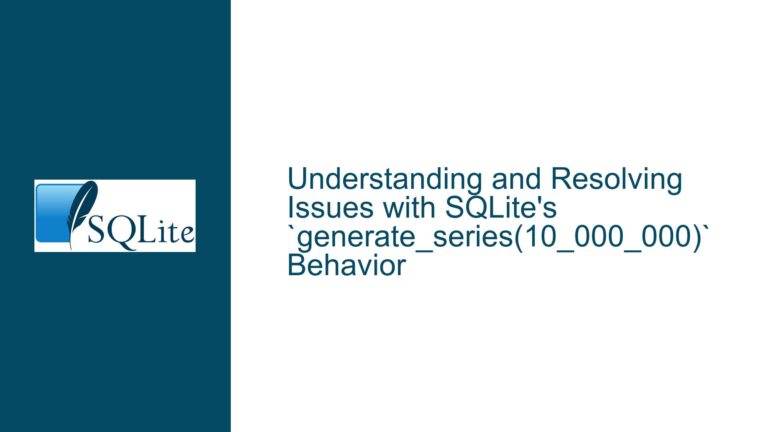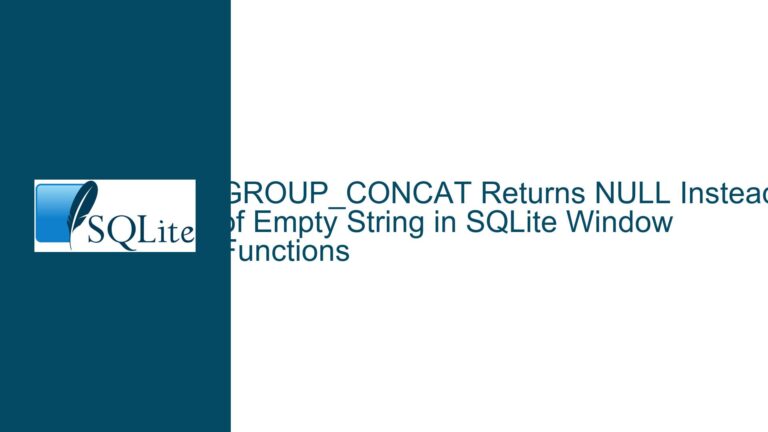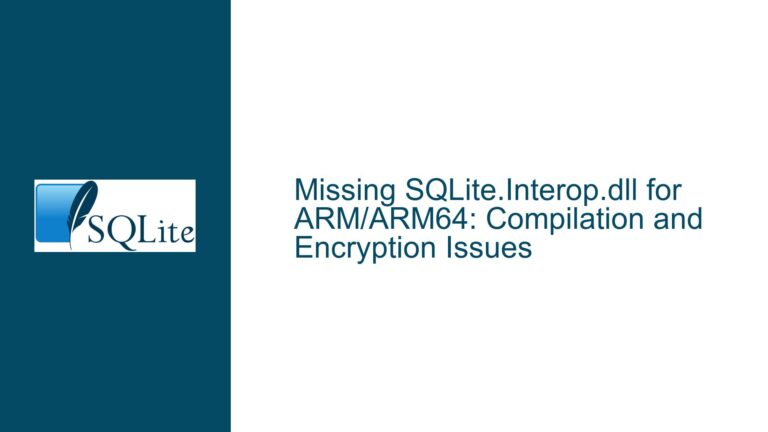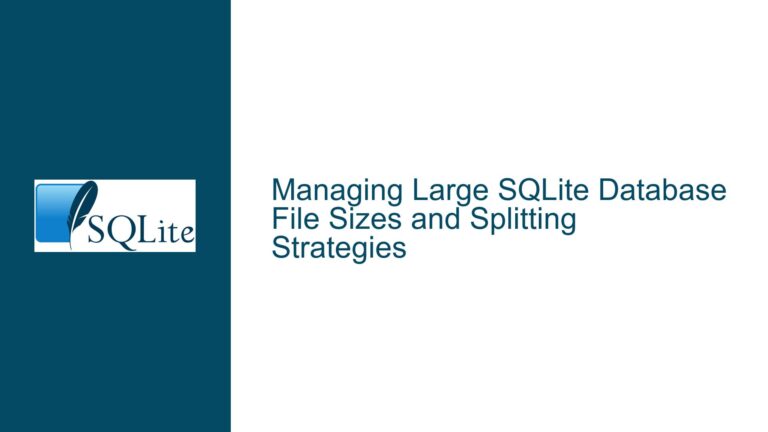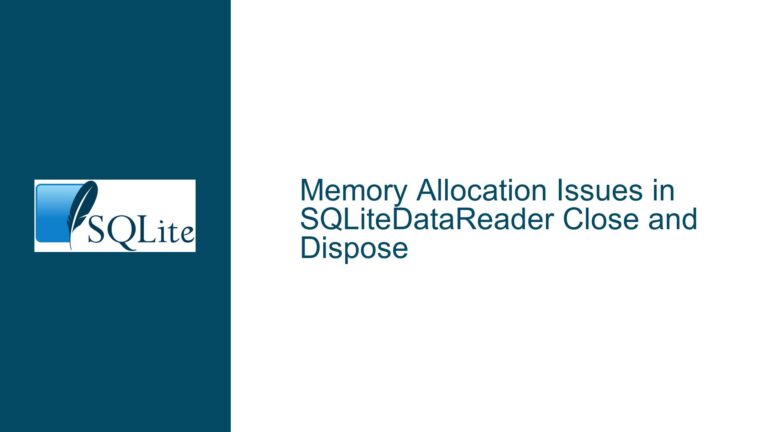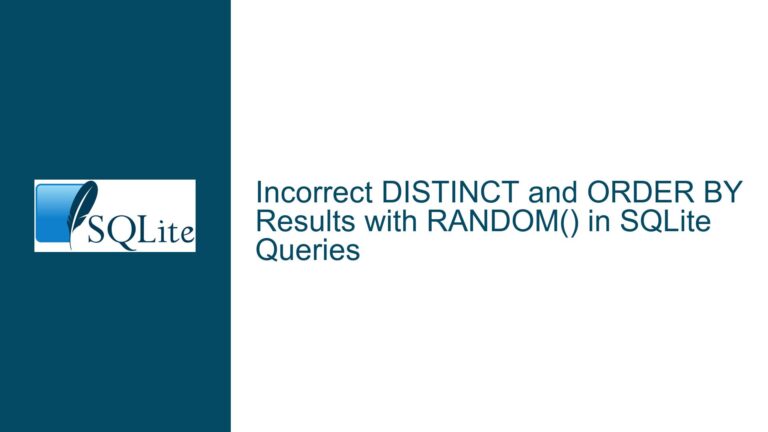Recovering SQLite Databases Corrupted by “Disk Image Malformed” Error
Understanding the "Disk Image Malformed" Error and Partial Data Accessibility via .dump The "disk image malformed" error (SQLite error code 11) occurs when the database engine detects structural inconsistencies in the SQLite file format. This error indicates that one or more database pages contain invalid data, violating the predefined schema or storage rules. A critical…
